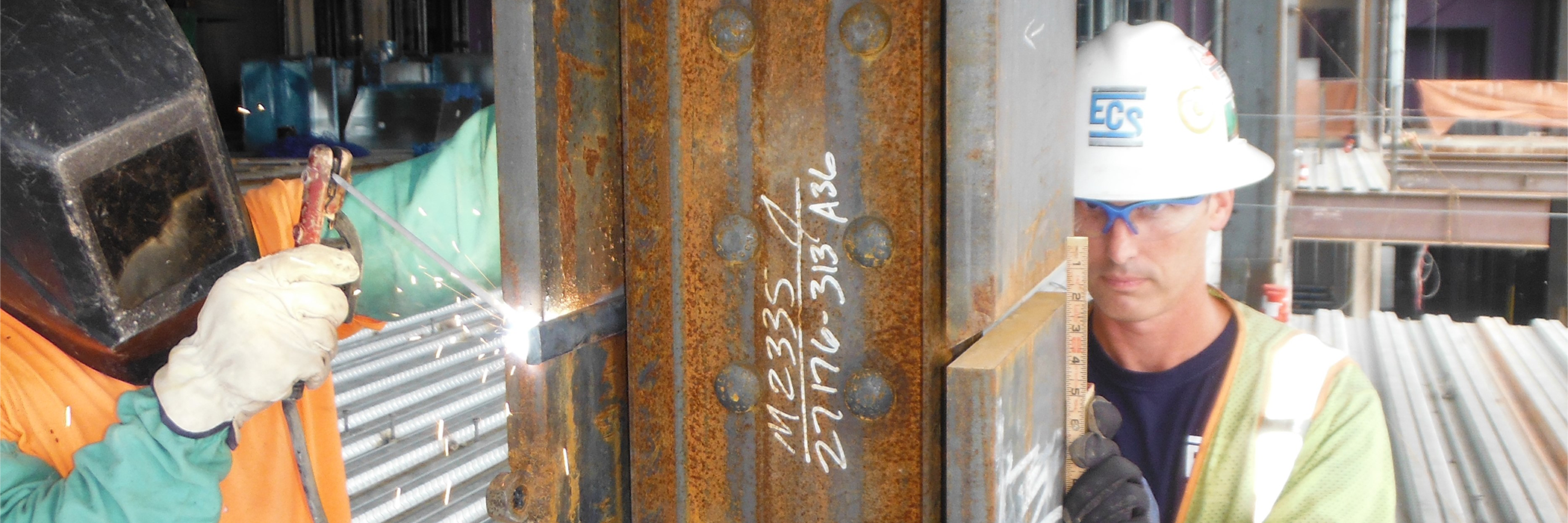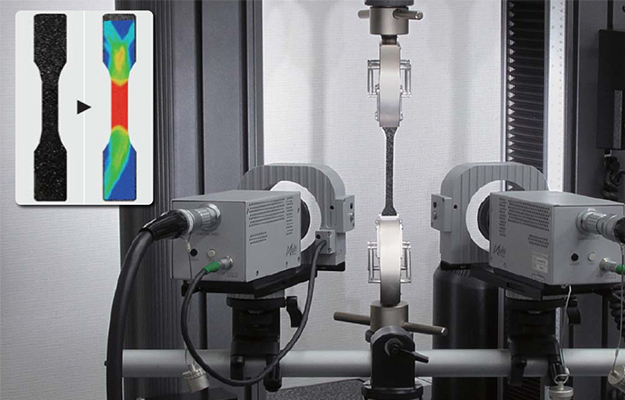Exact Evaluation: Discover the Power of Our Materials Test Lab
Wiki Article
Accuracy Screening of Materials for Toughness and Longevity
Precision screening of products for toughness and toughness plays an essential role in numerous industries, including design, production, and construction. This process involves subjecting different products to strenuous assessments to identify their ability to hold up against exterior pressures and preserve their honesty over time.Worldwide of materials testing, accuracy is extremely important. Researchers and engineers depend on reputable and precise data to make educated choices concerning product choice, style optimization, and item efficiency. By making use of innovative testing techniques and modern equipment, professionals can analyze the toughness and durability of a vast array of materials, such as metals, ceramics, compounds, and polymers.
This introduction will offer understandings right into the relevance of accuracy screening, the sorts of products generally subjected to screening, the vital criteria for toughness evaluation, and the techniques made use of for durability analysis. It will certainly likewise highlight the applications and advantages of performing accuracy screening in different industries.
Relevance of Accuracy Screening
Precision screening is an essential action in evaluating the stamina and longevity of materials, providing exact and trustworthy data for informed decision-making. The top quality and performance of products play an essential role in making certain the security and long life of structures and items when it comes to production and construction markets. Consequently, carrying out accuracy testing is of utmost significance to establish whether the materials satisfy the called for specs and criteria.By subjecting materials to strenuous screening producers, treatments and engineers can evaluate their mechanical properties, such as tensile strength, hardness, and effect resistance. This details permits them to make certain that the products can stand up to employed pressures and ecological problems without failure or destruction with time. In addition, accuracy testing helps identify any potential flaws or weaknesses in the products, allowing makers to make essential improvements or modifications to boost efficiency and dependability.
In addition, accuracy testing provides measurable and objective data that can be made use of to contrast various materials and make notified decisions concerning their viability for certain applications. This info is particularly valuable when choosing products for vital components or frameworks where failure can have severe repercussions.
Sorts Of Materials Subjected to Examining
Different products are subjected to testing for toughness and durability. This screening is crucial to make certain that the materials can hold up against the demands of their intended applications and to determine their expected life-span. The types of products based on testing are diverse and consist of metals, polymers, ceramics, composites, and building products.Metals, such as steel and aluminum, are commonly examined for their tensile strength, firmness, and resistance to deterioration. materials test lab. These examinations help identify their viability for use in architectural applications, machinery, and numerous commercial processes

Ceramic products, such as porcelain and ceramic floor tiles, are evaluated for their compressive stamina, warm resistance, and resilience. These tests make sure that porcelains can withstand harsh atmospheres and high temperature levels, making them suitable for applications in the construction, electrical, and aerospace markets.
Composites, which are materials made from a mix of different parts, are subjected to various tests to examine their mechanical residential properties, such as tightness, impact, and stamina resistance. Compound materials are widely utilized in industries such as aerospace, vehicle, and sports equipment manufacturing.
Building products, consisting of asphalt, timber, and concrete, undertake screening to determine their load-bearing capacity, durability, and resistance to weathering. These examinations are important in making certain the security and long life of bridges, frameworks, and roads.
Key Criteria for Strength Analysis
Products based on testing for strength and toughness must be reviewed based upon essential criteria that accurately examine their ability to hold up against exterior forces and environmental conditions. These parameters play a vital function in identifying the general efficiency and integrity of a product. Among the key specifications for toughness examination is the tensile strength, which determines a material's ability to withstand pulling pressures without damaging or flawing. Another essential specification is the compressive strength, which reviews a material's resistance to squashing or being pressed with each other. In addition, the flexural stamina is considerable, as it assesses a product's capability to hold up against bending or twisting forces. The impact stamina is vital in assessing a material's resistance to abrupt, dynamic forces. Other parameters that contribute to strength analysis include shear stamina, tiredness stamina, and hardness. Shear stamina measures a product's capability to stand up to pressures that cause gliding or tearing apart. Exhaustion stamina evaluates a product's resistance to repeated loading and dumping cycles. Hardness is necessary as it measures a product's resistance to imprint or abrasion. By assessing these vital specifications, scientists and engineers can precisely assess the stamina and durability of materials, allowing them to make informed decisions in various markets such as aerospace, automobile, construction, and production.

Strategies for Longevity Evaluation
Resilience analysis strategies are important for assessing the lasting efficiency and reliability of materials. These methods are important in determining the ability of materials to stand up to various ecological problems and mechanical stresses over extended periods of time.An additional method is cyclic screening, which includes subjecting products to duplicated loading and unloading cycles. This assists assess the material's tiredness resistance and its capability to withstand repeated tension without failure. By evaluating the stress-strain response of the material during cyclic testing, scientists can recognize possible weak points and evaluate the product's longevity.
In addition, non-destructive screening techniques such as ultrasonic testing and infrared thermography can be employed to examine the interior integrity and find any type of flaws or damage in the material. These methods give valuable information concerning the product's longevity without causing any damage to it.
Applications and Advantages of Accuracy Testing
Precision testing plays an important role in analyzing the stamina and longevity of materials, making it possible for scientists and engineers to obtain trustworthy and accurate information for examining image source their performance. The applications of accuracy testing are considerable and can be discovered across numerous industries, consisting of aerospace, automotive, building and construction, and manufacturing.Among the crucial advantages of precision screening is its capability to recognize prospective weaknesses or imperfections in materials. By subjecting products to strenuous and regulated screening, any type of defects or click here for more info susceptabilities can be detected prior to they lead to disastrous failures. This permits makers to make necessary enhancements or changes to boost the overall top quality and longevity of their products.
Accuracy screening also helps in establishing the optimal style and make-up of products. By checking various variations and setups, designers can identify one of the most ideal materials for particular applications. This brings about improved performance, efficiency, and cost-effectiveness in various industries.
Moreover, accuracy testing offers useful information for the development and renovation of materials and producing procedures. materials test lab. It permits scientists to gain a deeper understanding of material behavior under different conditions, bring about the development of new materials with enhanced efficiency, toughness, and longevity characteristics
Final Thought
To conclude, precision testing plays a vital role in assessing the toughness and resilience of materials. By subjecting different sorts of products to extensive screening, essential parameters for strength assessment can be recognized. In addition, strategies for longevity evaluation supply useful insights into the efficiency and life expectancy of products. This understanding enables sectors to make educated decisions and ensures the growth of trusted and resilient items.Accuracy testing is a crucial action in evaluating the stamina and resilience of products, giving reliable and precise information for informed decision-making.Numerous materials are subjected to testing for stamina and durability. The kinds of products subjected to testing are varied and consist of steels, polymers, ceramics, compounds, and building and construction products.
By evaluating the stress-strain response of the Clicking Here material during cyclic screening, researchers can identify potential weak points and assess the material's toughness.
In verdict, precision screening plays an important duty in evaluating the strength and resilience of materials.
Report this wiki page